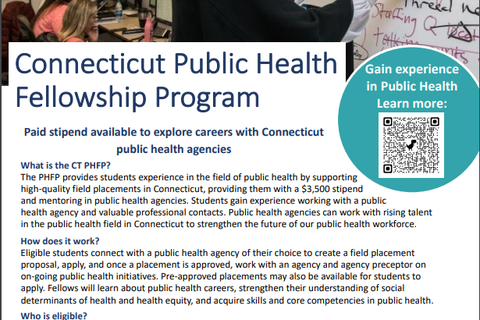Almost half of all CAS students pursue graduate programs at some point (check out where recent students have gone). If you are interested in graduate or professional school in the health professions, or pursuing a law degree, we have dedicated advisor on campus to work with you to keep you on track (see below). If you are thinking about a gap (or “skill building”) year before enrolling in graduate school check out some of the experience below and this guide for more ideas and tips.
If you are planning to pursue a graduate degree here at Quinnipiac there are advisors within each academic program to assist you as well. Check out the links to these programs below.
Graduate school is a significant commitment in terms of both time and money. The choice to pursue additional education should be considered carefully!
Some factors to consider:
-
Am I passionate about this?Whether you pursue continuing studies purely for the pleasure of learning, or you have other short- or long-term goals in mind, you will spend a lot of time and money focused on highly specialized learning in a specific subject. If you aren’t passionate to learn about that subject, the rigors of graduate study could become a burden. Speak with your academic advisor about any concerns you have, and consider reaching out to QU alumni who have followed a similar path to get some additional feedback on the process and what you can expect.
-
Is a graduate degree a requirement for entry-level employment in your chosen field?If so, it certainly makes sense to pursue a degree quickly after your undergraduate experience, although some students find a gap year can be helpful both professionally and to enhance their appeal as candidates to graduate programs.
-
Is a graduate degree a requirement for advancement in my intended career path?In many cases the investment in a graduate degree may not show up in the form of immediate new opportunities or pay increases. However, in many professions a graduate degree might be a requirement for advancement 5 to 10 years into your career. This leads to a consideration of the timing of when to attend graduate school.
-
When should you attend?If entry-level employment in your field requires a graduate degree you may have little choice but to pursue a degree quickly after your undergrad education is completed. However, if that isn’t the case you may have some time. Should you enroll quickly or should you first pursue employment for a few years? Would delaying enrollment to gain experience make you a better candidate? Does your intended program require full-time work experience? Would you personally be more likely to succeed academically if you entered right away rather than taking a few years off from the academic world? Think about typical timelines and how they might apply to you, as well as testing requirements.
-
How certain are you about your career path?Graduate or professional school is about developing an in-depth expertise in a specific area. If you aren’t sure about how you will apply your graduate education then additional exploration might be worthwhile.










